Quiz
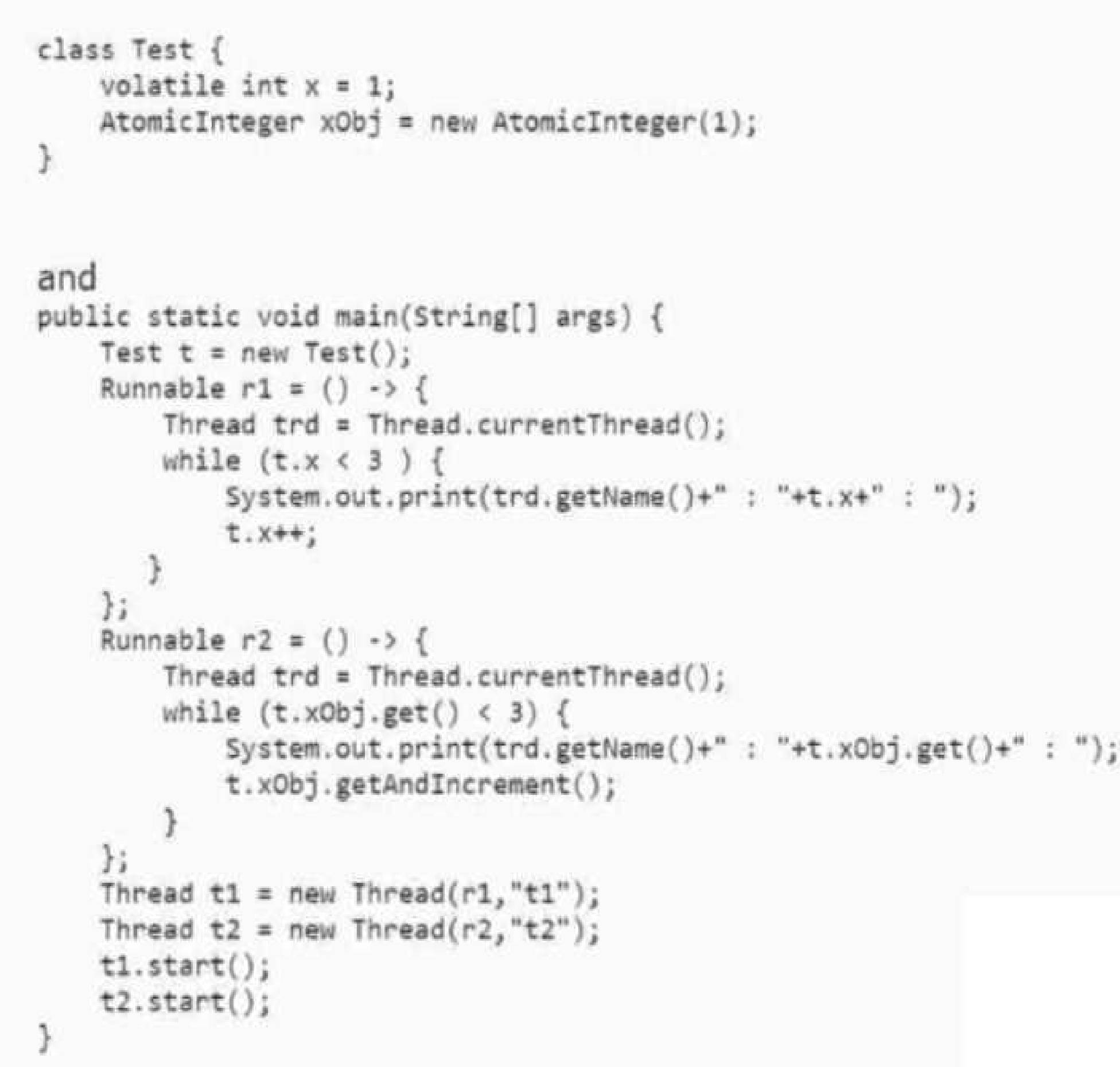
Which is true?
Quiz
Quiz
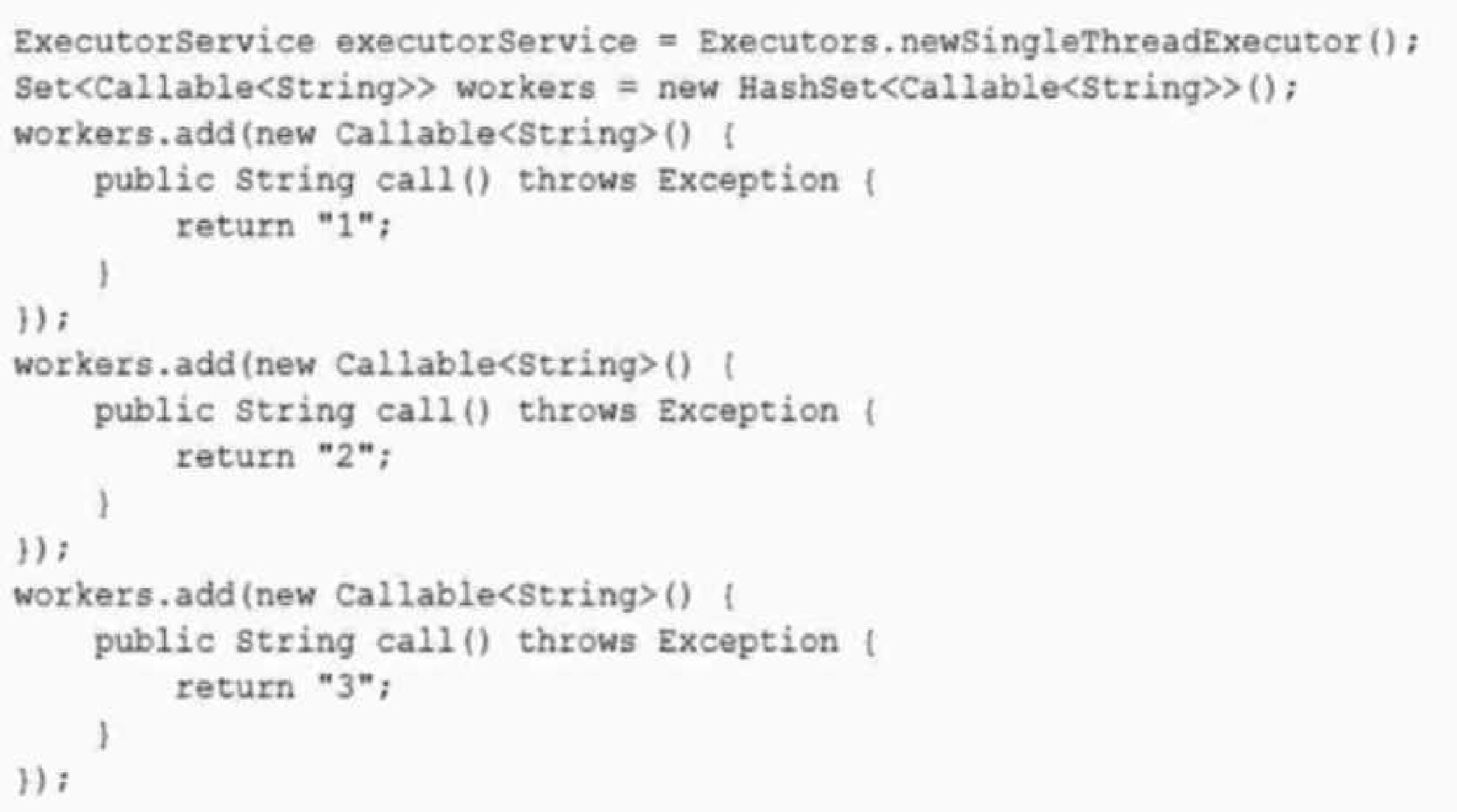
Which code fragment invokes all callable objects in the workers set?
A)

B)

C)

D)

Quiz
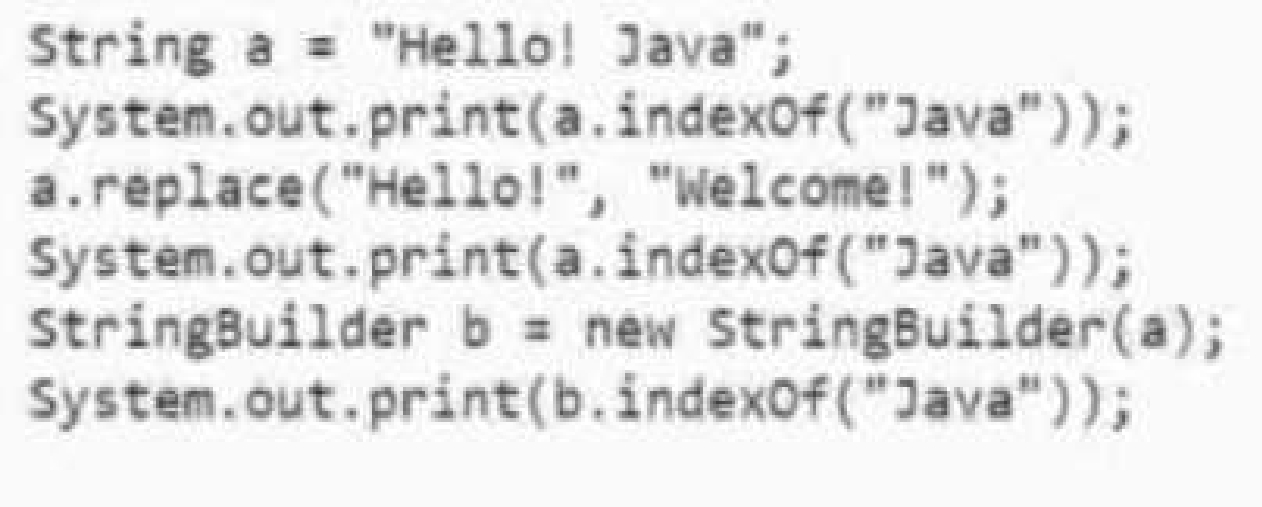
What is the result?
Quiz
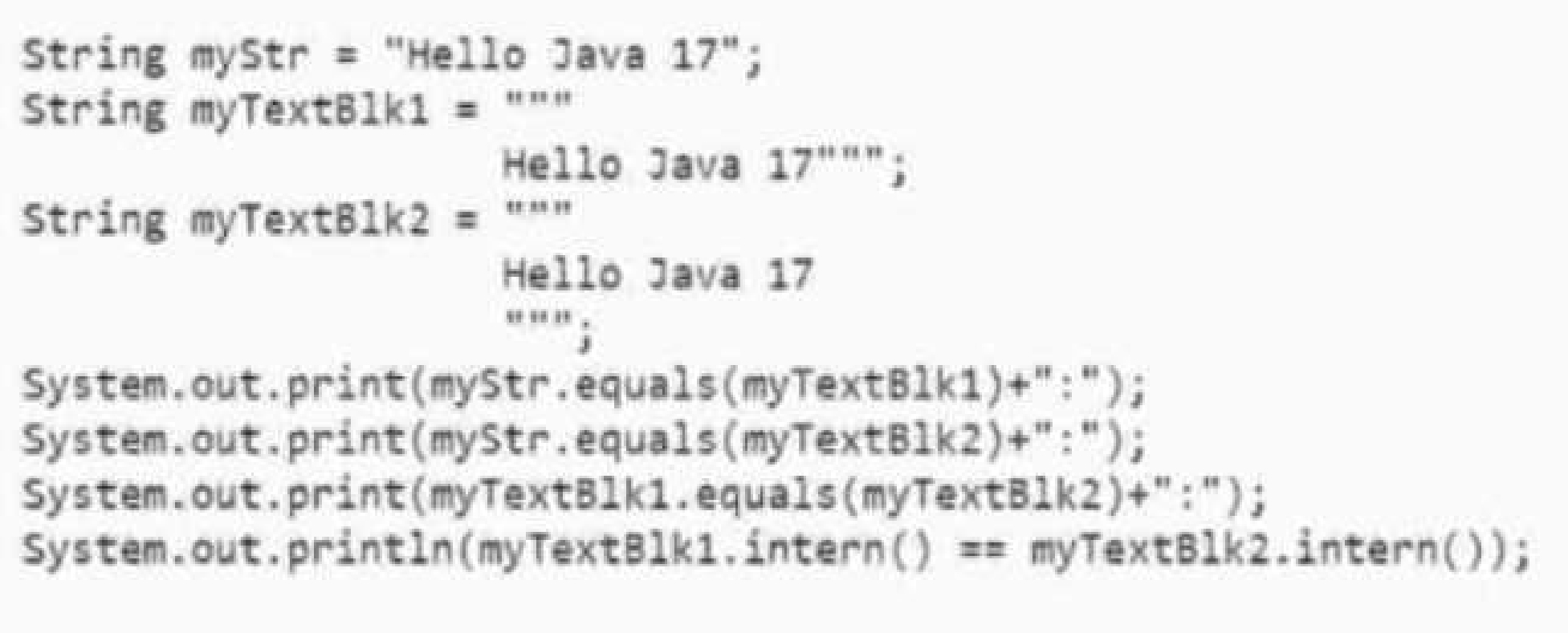
Quiz
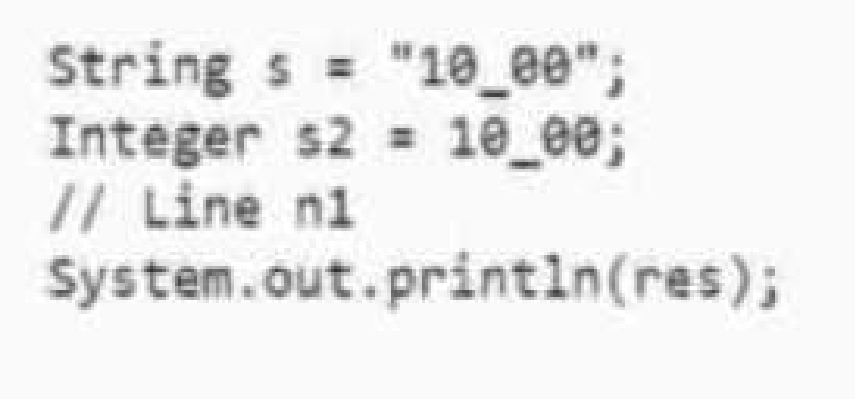
Which two statements at Line nl independently enable you to print 1250?
Quiz
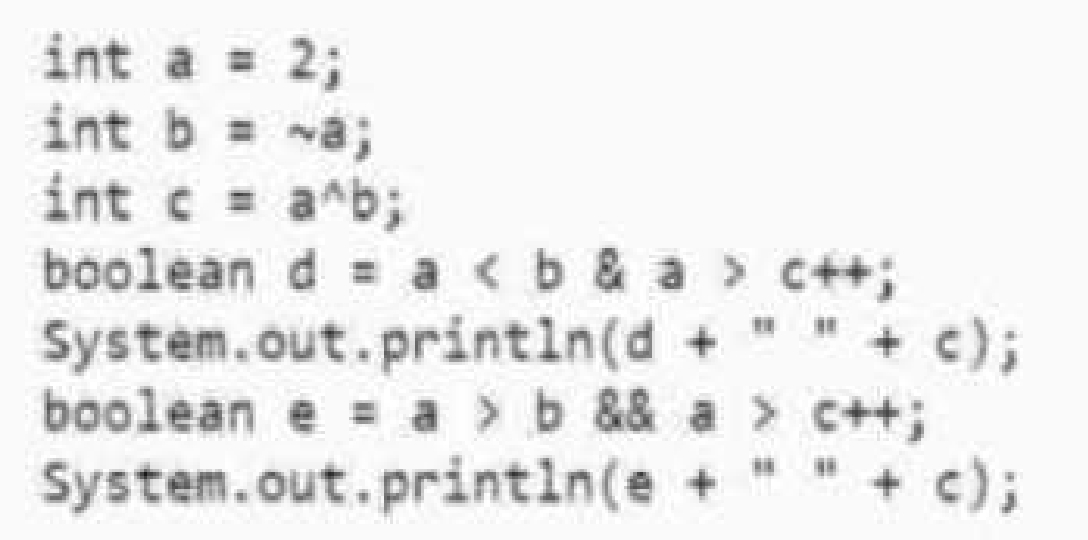
What is the result?
Quiz
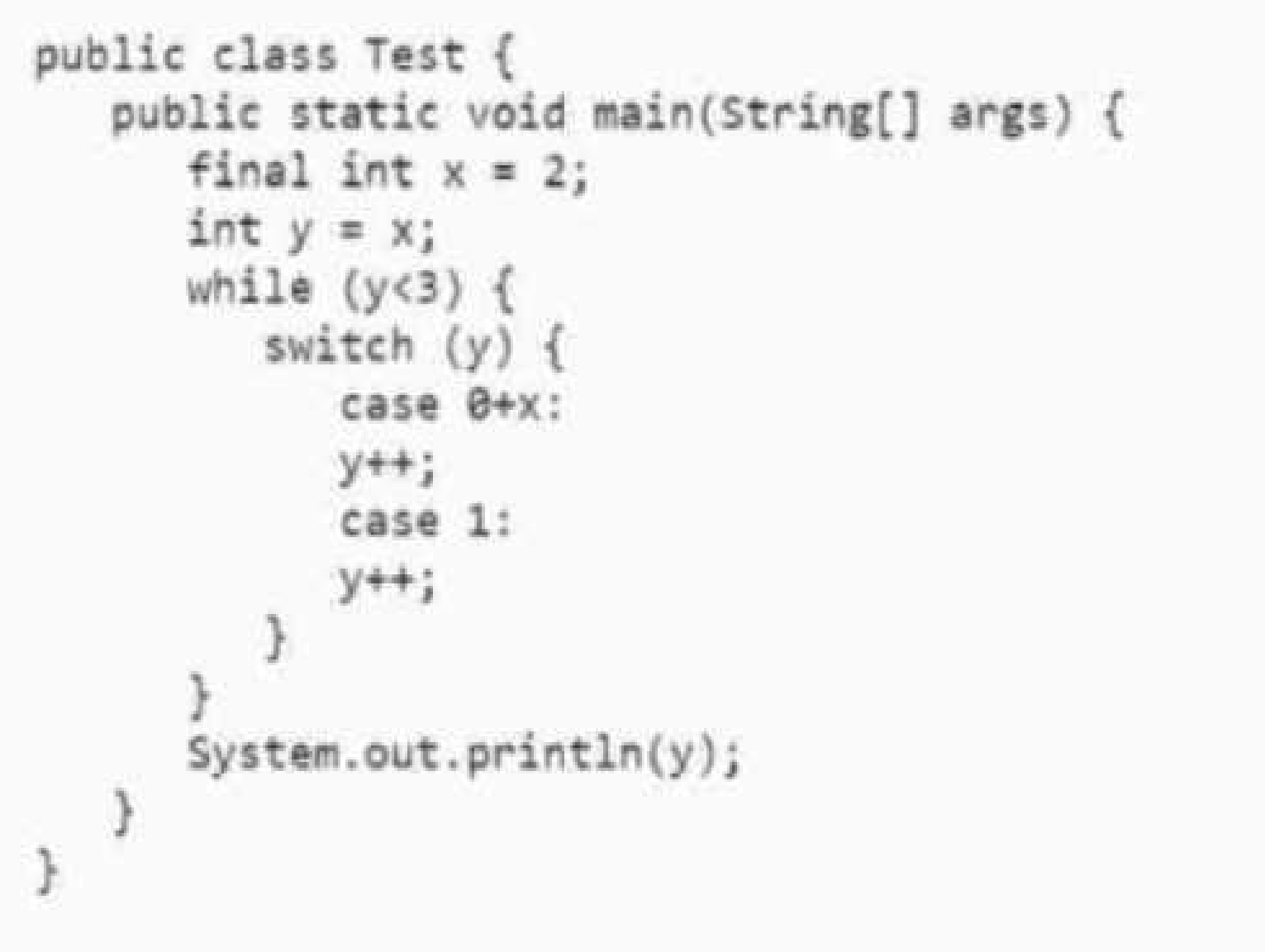
What is the result?
Quiz

What is the result?
Quiz

What is the result?
Oracle Java SE 17 Developer Practice test unlocks all online simulator questions
Thank you for choosing the free version of the Oracle Java SE 17 Developer practice test! Further deepen your knowledge on Oracle Simulator; by unlocking the full version of our Oracle Java SE 17 Developer Simulator you will be able to take tests with over 50 constantly updated questions and easily pass your exam. 98% of people pass the exam in the first attempt after preparing with our 50 questions.
BUY NOWWhat to expect from our Oracle Java SE 17 Developer practice tests and how to prepare for any exam?
The Oracle Java SE 17 Developer Simulator Practice Tests are part of the Oracle Database and are the best way to prepare for any Oracle Java SE 17 Developer exam. The Oracle Java SE 17 Developer practice tests consist of 50 questions and are written by experts to help you and prepare you to pass the exam on the first attempt. The Oracle Java SE 17 Developer database includes questions from previous and other exams, which means you will be able to practice simulating past and future questions. Preparation with Oracle Java SE 17 Developer Simulator will also give you an idea of the time it will take to complete each section of the Oracle Java SE 17 Developer practice test . It is important to note that the Oracle Java SE 17 Developer Simulator does not replace the classic Oracle Java SE 17 Developer study guides; however, the Simulator provides valuable insights into what to expect and how much work needs to be done to prepare for the Oracle Java SE 17 Developer exam.
BUY NOWOracle Java SE 17 Developer Practice test therefore represents an excellent tool to prepare for the actual exam together with our Oracle practice test . Our Oracle Java SE 17 Developer Simulator will help you assess your level of preparation and understand your strengths and weaknesses. Below you can read all the quizzes you will find in our Oracle Java SE 17 Developer Simulator and how our unique Oracle Java SE 17 Developer Database made up of real questions:
Info quiz:
- Quiz name:Oracle Java SE 17 Developer
- Total number of questions:50
- Number of questions for the test:50
- Pass score:80%
You can prepare for the Oracle Java SE 17 Developer exams with our mobile app. It is very easy to use and even works offline in case of network failure, with all the functions you need to study and practice with our Oracle Java SE 17 Developer Simulator.
Use our Mobile App, available for both Android and iOS devices, with our Oracle Java SE 17 Developer Simulator . You can use it anywhere and always remember that our mobile app is free and available on all stores.
Our Mobile App contains all Oracle Java SE 17 Developer practice tests which consist of 50 questions and also provide study material to pass the final Oracle Java SE 17 Developer exam with guaranteed success. Our Oracle Java SE 17 Developer database contain hundreds of questions and Oracle Tests related to Oracle Java SE 17 Developer Exam. This way you can practice anywhere you want, even offline without the internet.
BUY NOW